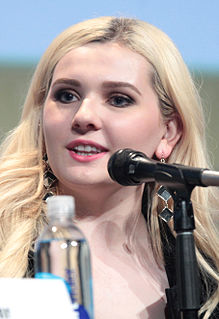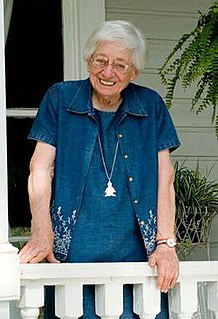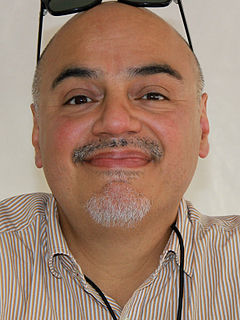A Quote by Abigail Breslin
I don't really like to talk about other people. I think people who have things going on in their lives, I think they have enough to deal with, they don't need, you know, Abigail Breslin weighing in on their lives.
Related Quotes
I really think people are greatly stimulated and enriched by experiencing in film just as we can from novels and other art, experiencing things that resonate with what our lives are about. I think people really want to know... want to share, want to have the stimulus to think and care about the way they live their lives, the way they relate to other people, their aspirations, their hopes, et cetera.
I think it's really easy for people to point out hypocrisy in people's lives. It's like yeah, I get on planes a lot, and I drank from a plastic water bottle today - you know what I'm saying? A lot of people would just be like, "Oh, you're a hypocrite. You live in an ecovillage for a month, and then you fly around the world to talk about a movie." Don't think that I don't think about those things! Don't think that that's not, like, a quandary in my life. It can be a pretty intense ethical dilemma. I think it's about figuring out, you know, navigating life.
Cynicism is kind of like folding your arms and stepping back and commenting on things, like the old guys in 'The Muppets,' just throwing out comments all the time, whereas there are other people on the ground really trying to affect things and improve their lives and the lives of other people. I think it's noble and I think it's cool.
Historically it has been a touchy subject, especially in the south where I am from, people don't really talk about it. If they do talk about it, it is often talked about negatively. Nowadays in light of the Black Lives Matter movement I think people should pay attention to these lives also. I think the Black community will really embrace the film [Moonlight]. It is about us. It is real.
I think we need to be put back in touch with our childhood...to be reminded of what's important, like memories about people we loved, or things that happened to us that affected our lives, things we can laugh about and shed a few tears about... I think storytelling is a way of saying 'I love you. I love you enough to tell you something that means a great deal to me.'
I don't want to know about the lives of other actors and I don't want people to know too much about me. If we don't know about the private lives of other actors, that leaves us as clean slates when it comes to playing characters. That's the point, they can create these other characters and I can believe them. I think if you're a good enough actor, that's the way to longevity in the film business. Keep everybody guessing.
I don't think people talk about mental illness a lot, but they need to know it's OK to talk about how they are feeling. People are afraid of telling the truth because they think it's going to hurt everyone around them. I've kept so much inside that I've literally lost it. I wish more people would get help when they feel like they need it-- not just to look to medicine, but to the support of others.
I think the media has got into this Enquirer mentality. Years ago, legitimate press didn't really concern itself with sordid details of people's personal lives. That wasn't the focus. But also a lot of celebrities were bullied into revealing this breakup or tragedy or divorce or problem. They started to talk about it and the press just started to talk about people's private lives. That just seems to be the norm.
I am a nonbeliever myself. But I think there's so much about religion that is not factual in nature as to why people engage with it and what it means to them. You can debunk why you think there's no physical evidence for God and why the story of Jesus didn't really happen that way and stuff like that all the live-long day, and it's not going to make a difference to what role religion has in people's lives and how they feel about it and how it makes their lives better or worse.
I'd like to think that what I've written over the years and what I'm doing now means something to people. People in the street all the time are saying "love the new record" or "I love that record," this tune or that tune. It means an awful lot, or it's been a big part of their lives. As a songwriter, what else would you really want? You're trying to connect with people, people's emotions, and maybe say something about their lives or feelings. That's probably a good enough compliment to receive, really.
If you're not mechanically in the community with people from the community trying to talk about our party, talk about school choice, talk about SBA loans for business owners - if someone's not there, nothing is going to change. You also need to have the tone ... people believe obviously you like them. If people don't think you like them, then they're not going to vote for you.




































